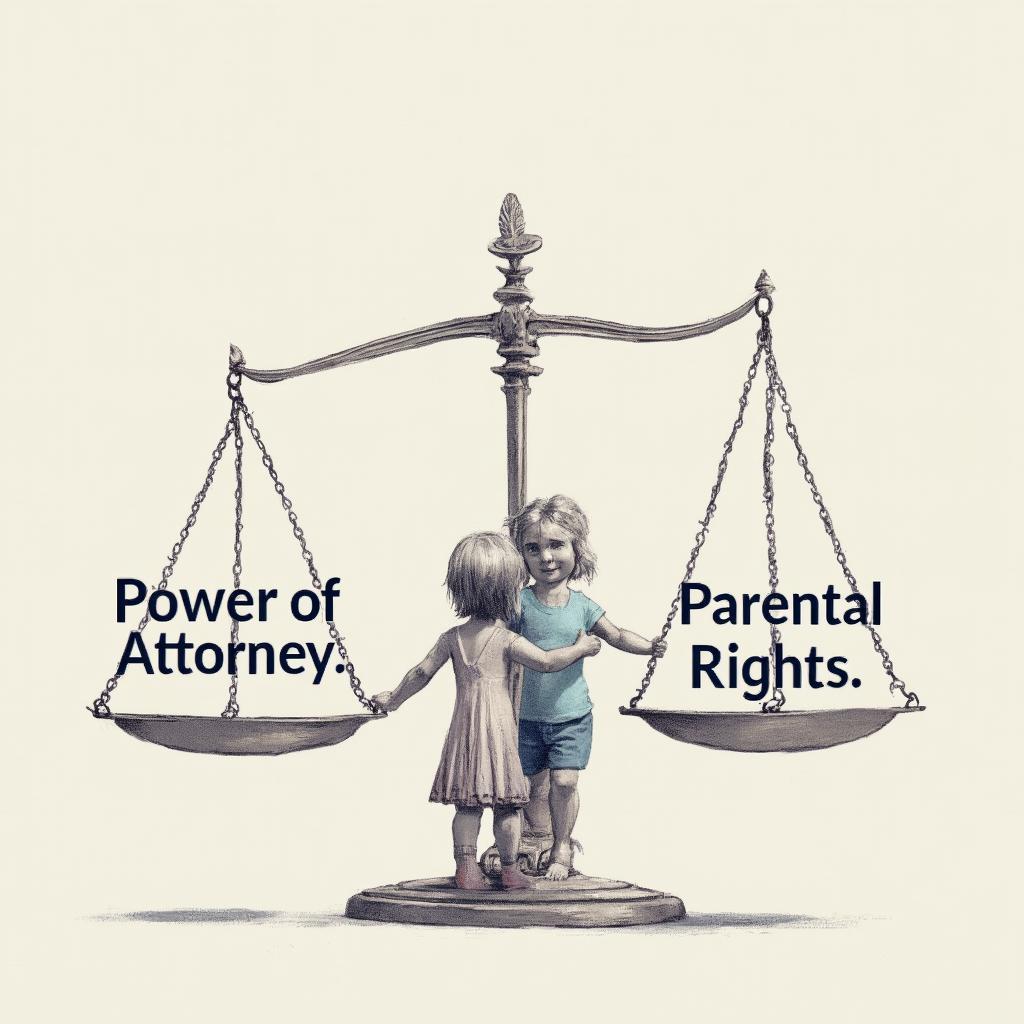
Does Power of Attorney Override Parental Rights?
A power of attorney (POA) grants authority to another person to act on your behalf. But does a power of attorney override parental rights? The interplay between these two legal concepts can be complex and often depends on the specific circumstances and the jurisdiction. Understanding the limits of a POA concerning parental rights is crucial for both parents and agents.
Understanding Power of Attorney and Parental Rights
A power of attorney is a legal document that authorizes someone, known as the “agent” or “attorney-in-fact,” to make decisions and act on behalf of another person, known as the “principal.” These decisions can range from financial matters to healthcare choices. Parental rights, on the other hand, are the legal rights and responsibilities afforded to parents concerning their children’s upbringing, including decisions about education, healthcare, and religious upbringing.
Types of Power of Attorney
Several types of POAs exist, each with varying scopes of authority:
- Durable Power of Attorney: This POA remains effective even if the principal becomes incapacitated.
- Non-Durable Power of Attorney: This POA terminates if the principal becomes incapacitated.
- Special Power of Attorney: This POA grants the agent authority for specific actions or a limited time.
- Medical Power of Attorney: This POA allows the agent to make healthcare decisions for the principal.
When a POA Might Seem to Conflict with Parental Rights
Confusion can arise when a parent grants a POA that seemingly overlaps with their parental rights. For instance, a parent might grant a durable POA to a grandparent to manage their finances and make healthcare decisions, including those for their children. This can lead to questions about who has the ultimate authority concerning the child’s well-being.
 Power of Attorney vs. Parental Rights: A Visual Representation
Power of Attorney vs. Parental Rights: A Visual Representation
Does a POA Supersede Parental Rights?
Generally, a standard POA does not override parental rights. While a POA can grant authority over financial matters and even medical decisions, it does not transfer legal guardianship or custody of a child. Parental rights are inherent and protected by law. A court order would typically be required to modify or terminate these rights. A POA alone is insufficient to accomplish this.
Exceptions and Specific Circumstances
There are limited situations where a POA might impact parental decision-making. For example, if a parent is incapacitated and has granted a medical POA, the agent may make healthcare decisions for the child in accordance with the principal’s wishes. However, even in these situations, the agent’s authority is limited to the scope of the POA and must be exercised in the best interests of the child.
 Limitations of a POA Regarding Parental Rights
Limitations of a POA Regarding Parental Rights
Seeking Legal Counsel
Navigating the complexities of POAs and parental rights requires careful consideration. Consulting with a qualified attorney is crucial to ensure that your legal documents accurately reflect your intentions and protect your family’s interests. They can advise you on the specific laws in your jurisdiction and help you draft a POA that complements, rather than conflicts with, your parental rights.
“Understanding the nuances of power of attorney in relation to parental rights is essential for protecting your children’s well-being,” advises Ms. Nguyen Thi Lan Anh, a family law attorney at a reputable Hanoi law firm. “A carefully drafted POA can provide support and assistance while preserving the fundamental rights and responsibilities of parenthood.”
 Consulting a Lawyer about POA and Parental Rights
Consulting a Lawyer about POA and Parental Rights
Conclusion
While a power of attorney can be a valuable tool for managing your affairs, it’s crucial to understand its limitations regarding parental rights. A POA does not typically supersede parental rights. Consulting with an attorney is essential to ensure your legal documents align with your wishes and protect your children’s best interests. This proactive approach will help you navigate the complexities of POA and parental rights with confidence. Remember, seeking professional legal advice tailored to your specific situation is always the best course of action.
“A well-drafted power of attorney can provide peace of mind, but it’s crucial to consult with an attorney who understands the intricacies of family law to ensure your parental rights remain protected,” adds Mr. Tran Van Minh, another experienced family law attorney based in Ho Chi Minh City. “Don’t leave room for ambiguity – clarity is paramount when it comes to your children’s future.”
FAQ
- Can a grandparent with power of attorney make school choices for my child? Generally, no. School enrollment decisions typically fall under the purview of parental rights.
- What happens if a POA conflicts with a court order regarding custody? The court order will generally prevail.
- Can I revoke a power of attorney? Yes, you can generally revoke a POA as long as you are mentally competent.
- Who should I contact if I have concerns about a POA impacting parental rights? A qualified family law attorney in your jurisdiction.
- Does a POA grant the agent the right to change my child’s name? No, a POA typically doesn’t grant the authority to change a child’s name. This requires a court order.
- Can a POA authorize someone to make religious decisions for my child? Generally, no. Religious upbringing decisions are considered a fundamental aspect of parental rights.
- What if the parent with parental rights is unavailable or incapacitated? A medical POA might allow the agent to make healthcare decisions, but not change legal custody.





